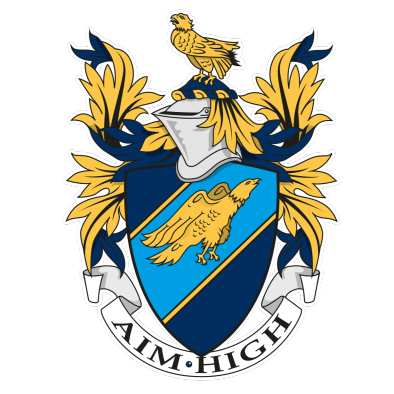Science
Curriculum Aims
We aim for everybody to:
- develop a strong foundation in scientific knowledge and methodology;
- foster critical thinking and problem-solving skills;
- cultivate curiosity and a love for learning;
- enhance communication and collaboration skills;
- develop an appreciation for the impact of science on society.
Curriculum Information
GCSE Biology
Qualifications
GCSE Biology is the study of living organisms and their structure, life-cycles, adaptations and environment. The examination board used is AQA and students complete two separate papers. These are linear examinations containing multiple choice, structured, closed short answer and open response questions.
Summary of Assessment
Paper 1: Topics 1-4: Cell biology; Organisation; Infection and response; and Bioenergetics.
- Written exam: 1 hour 45 minutes
- Foundation and Higher Tier
- 100 marks
- 50% of GCSE
Paper 2: Topics 5-7: Homeostasis and response; Inheritance, variation and evolution; and Ecology.
- Written exam: 1 hour 45 minutes
- Foundation and Higher Tier
- 100 marks
- 50% of GCSE
Where can I find more details?
Additional Information
All students in year 10 are taught both higher and foundation tier content. Exam entries are finalised in year 11. Students that achieve grade 6 in a particular GCSE Science will be able to progress to study A-level at college. Students studying ‘separate’ science can achieve three separate GCSEs.
GCSE Chemistry
Qualifications
Chemistry is the study of the composition, behaviour and properties of matter, and of the elements of the Earth and its atmosphere. The examination board used is AQA and students complete two separate papers. These are linear examinations containing multiple choice, structured, closed short answer and open response questions.
Summary of Assessment
Paper 1: Topics 1–5: Atomic structure and the periodic table; Bonding, structure, and the properties of matter; Quantitative chemistry, Chemical changes; and Energy changes.
- Written exam: 1 hour 45 minutes
- Foundation and Higher Tier
- 100 marks
- 50% of GCSE
Paper 2: Topics 6–10: The rate and extent of chemical change; Organic chemistry; Chemical analysis, Chemistry of the atmosphere; and Using resources.
- Written exam: 1 hour 45 minutes
- Foundation and Higher Tier
- 100 marks
- 50% of GCSE
Where can I find more details?
Additional Information
All students in year 10 are taught both higher and foundation tier content. Exam entries are finalised in year 11. Students that achieve grade 6 in a particular GCSE Science will be able to progress to study A-level at college. Students studying ‘separate’ science can achieve three separate GCSEs.
GCSE Physics
Qualifications
Physics is the study of energy, forces, mechanics, waves, and the structure of atoms and the physical universe. The examination board used is AQA and students complete two separate papers. These are linear examinations containing multiple choice, structured, closed short answer and open response questions.
Summary of Assessment
Paper 1: Topics 1-4: Energy; Electricity; Particle model of matter; and Atomic structure.
- Written exam: 1 hour 45 minutes
- Foundation and Higher Tier
- 100 marks
- 50% of GCSE
Paper 2: Topics 5-8: Forces; Waves; Magnetism and electromagnetism; and Space physics.
Questions in paper 2 may draw on an understanding of energy changes and transfers due to heating, mechanical and electrical work and the concept of energy conservation from Energy and Electricity.
- Written exam: 1 hour 45 minutes
- Foundation and Higher Tier
- 100 marks
- 50% of GCSE
Where can I find more details?
Additional Information
All students in year 10 are taught both higher and foundation tier content. Exam entries are finalised in year 11. Students that achieve grade 6 in a particular GCSE Science will be able to progress to study A-level at college. Students studying ‘separate’ science can achieve three separate GCSEs.
GCSE Combined Science (Trilogy)
Qualifications
A combined study of all three Sciences; Biology, Chemistry and Physics.
Biology is the study of living organisms and their structure, life-cycles, adaptations and environment.
Physics is the study of energy, forces, mechanics, waves, and the structure of atoms and the physical universe.
Chemistry is the study of the composition, behaviour and properties of matter, and of the elements of the Earth and its atmosphere.
There are six papers: two biology, two chemistry and two physics. Each of the papers will assess knowledge and understanding from distinct topic areas. These are linear examinations containing multiple choice, structured, closed short answer and open response questions.
Summary of Assessment
Biology Paper 1: Biology topics 1–4: Cell Biology; Organisation; Infection and response; and Bioenergetics.
- Written exam: 1 hour 15 minutes
- Foundation and Higher Tier
- 70 marks
- 16.7% of GCSE
Chemistry Paper 1: Chemistry topics 8–12: Atomic structure and the periodic table; Bonding, structure, and the properties of matter; Quantitative chemistry; Chemical changes; and Energy changes.
- Written exam: 1 hour 15 minutes
- Foundation and Higher Tier
- 70 marks
- 16.7% of GCSE
Physics Paper 1: Physics topics 18–21: Energy; Electricity; Particle model of matter; and Atomic structure.
- Written exam: 1 hour 15 minutes
- Foundation and Higher Tier
- 70 marks
- 16.7% of GCSE
Biology Paper 2: Biology topics 5–7: Homeostasis and response; Inheritance, variation and evolution; and Ecology.
- Written exam: 1 hour 15 minutes
- Foundation and Higher Tier
- 70 marks
- 16.7% of GCSE
Chemistry Paper 2: Chemistry topics 13–17: The rate and extent of chemical change; Organic chemistry; Chemical analysis; Chemistry of the atmosphere; and Using resources.
- Written exam: 1 hour 15 minutes
- Foundation and Higher Tier
- 70 marks
- 16.7% of GCSE
Physics Paper 2: Physics topics 22–24: Forces; Waves; and Magnetism and electromagnetism
- Written exam: 1 hour 15 minutes
- Foundation and Higher Tier
- 70 marks
- 16.7% of GCSE
Where can I find more details?
Additional Information
All students in year 10 are taught both higher and foundation tier content. Exam entries are finalised in year 11. Students that achieve grade 6 in a particular GCSE Science will be able to progress to study A-level at college.





